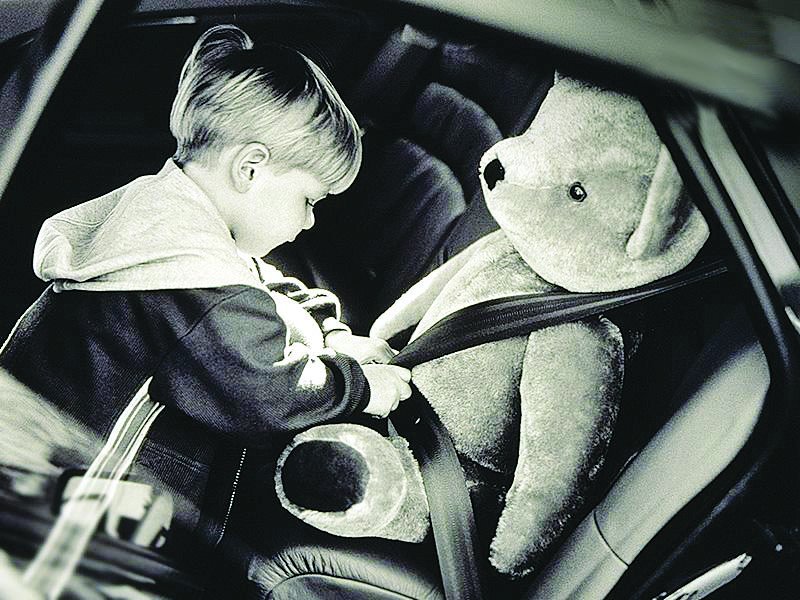FEB 26 — A white bashed-up Proton Saga swerved into my lane out of nowhere on the Middle Ring Road 2.
Greeting me from the vehicle’s rear passenger seat were two children, in their primary school uniforms, with their tongues out.
They were all over the place, and had rolled down the window to put their hands out just like a scene from an MTV video clip.
I was not so disturbed by their rude antics but of the fact that the two boys, probably aged seven or eight, were not properly fastened to their seats.
What would happen to them if the driver was forced to slam the brakes?

The law requiring rear passengers to fasten their seat belts came into effect on Jan 1, 2009. Much was spent on promoting the need to wear rear seat belts — evident through the many advertisements and initiatives the same year.
However, The Malay Mail had on Monday highlighted a Malaysian Institute of Road Safety Research (Miros) study — Seat Belt Compliance 2008-2013 — that revealed only 11.1 per cent rear passengers fastened their seat belts. The figure was a far cry from Miros’ 2008 study which had targeted 80 per cent of passengers would buckle up by 2010.
According to the Road Transport Department website, those exempted from buckling up were those aged 17 and below, pregnant women and those with a certified medical condition.
It is evident the exemption for children was made due to the fact car seats and seat belts were tailored for adults. But the way around it is to ensure toddlers are restrained in a proper fashion while children are made to sit on a cushion or an elevated seat to ensure they reach a certain height to fasten the seat belts.
The impact of an accident would obviously do more damage to a child than an adult. Studies have shown that a crash at 40 kph is like falling from a two-storey building and slamming onto a concrete floor.
UK’s road safety initiative THINK! had on its website stated:
♦ Always wear a seat belt. In a crash you’re twice as likely to die if you don’t.
♦ Not wearing a seat belt can be a fatal decision even on short, familiar journeys and at low speeds.
♦ Wear your seat belt correctly so it can offer you the best possible protection in a crash.
Australia, meanwhile, amended the Australian Road Rules to introduce a mandatory age-appropriate restraint system for all children (16 and under) in vehicles. The new law came into effect in South Australia on July 1, 2010.
Do we need to wait for a family of five, who were all not wearing seat belts, to be thrown out of their vehicle with their heads and limbs severed and scattered all over the road before the law is treated seriously?
Then there’s the prolonged hot spell which has caused our water reserves to deplete, forcing Selangor to initiate water rationing, affecting millions of consumers. A similar exercise could also be seen in Negri Sembilan, Malacca and Johor if the situation worsens.
While housewives scramble to store water, residents take issue with the poor planning as they believe the current situation could be worse than the 1998 water crisis saga.
Meetings between the stakeholders were supposed to be initiated. Why weren’t they conducted earlier, given the extreme weather conditions compared to previous years? The Meteorological Department predicts the weather could rise beyond 34°C in coming days. Are the people well aware of what they have to do in such extreme conditions?
It is no rocket science. Here we have two issues — the ineffective campaign of getting people to fasten rear seat belts and a water crisis — which stemmed from lack of enforcement, poor planning and the typical tidak apa attitude.
We too need to play our part to ensure our kids are strapped in and stop water wastage.
Sadly, the average Ali, Ah Meng and Muthu would just brush off such situations saying; “This is Malaysia, mah”.
Life and water are equally precious. Let’s not take them for granted.
*This is the personal opinion of the columnist.






















